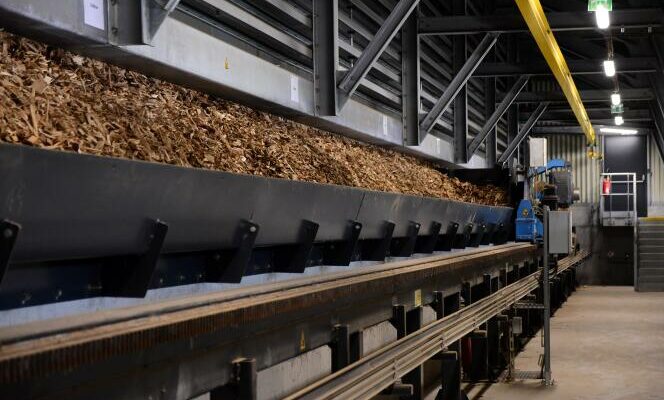During an extraordinary session on January 22, the members of the Vineuil municipal council (Loir-et-Cher) wholeheartedly applauded the abandonment of the biomass boiler room in the Paradis district. Mayor François Fromet (various left) was relieved to put an end to this public service delegation established in 2008 by a predecessor.
Its residents complained of high bills, late maintenance interventions and faulty heating due to water leaks on the network, which led to drops in flow. The boiler room wasn’t good for anyone. “The operator’s structural deficit was so significant that it preferred to disengage completely”, explains the elected official. The said deficit amounted to 162,841 euros in 2009, and 645,588 euros for the year 2022 alone.
The Paradis subdivision is a labyrinth of white houses and tarmac paths reclaimed from old farms. When the collective biomass boiler project was presented in 2007, 300 homes and a college were to benefit from energy savings of 30% compared to individual gas heating. Using wood as fuel – an ecological alternative to equivalents running on fossil fuels such as fuel oil, gas or coal – the new boiler room benefits, as such, from strong public subsidies.
But in Vineuil, the connection requires an additional cost of half a million euros compared to the planned budget. In 2012, the mayor authorized the delegatee to invoice subscribers for the depreciation and maintenance of their boiler. Their bills are rising, while service is deteriorating. Especially since the residential area, wedged between the college and a few bourgeois houses, cannot expand: the boiler room remains oversized.
“It was windy”
In the summer of 2024, a craftsman will come and install a heat pump free of charge at René Saulnier, a resident of the subdivision. The quote sits on the coffee table: 15,000 euros. The Dalkia company will pay to compensate for the dismantling of its boiler room. “It seems that a pump is noisy. It worries us all a little here”, he emphasizes. In 2023, this retiree paid 1,300 euros for heating and hot water, plus 1,200 euros for electricity. He saw the boiler room as recognition. “I had the impression that we were taking part in the ecological transition. It was windy. »
A truck of shredded material, or even two, still shows up every week at the entrance to the discreet black shed, surrounded by lime trees, which houses the boiler room, at the end of the housing estate. Its cargo is piled up, then mechanically pushed to the top of a large oven, a gleaming machine controlled by a touch screen. From time to time, a compressor sends air to dust the boiler. The device is suffocating. “I can’t see myself asking for a quote if it’s only going to be used for a few more months”sighs a technician who comes to inspect it every morning.
You have 52.14% of this article left to read. The rest is reserved for subscribers.
